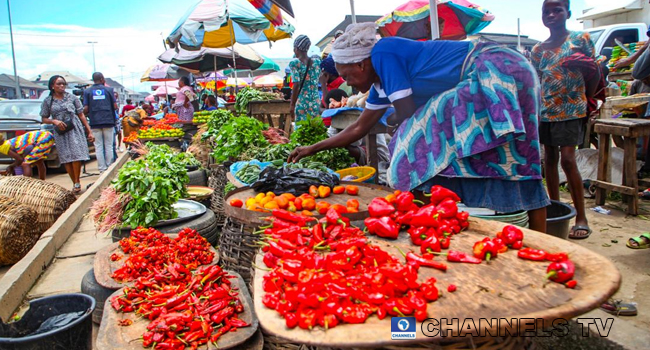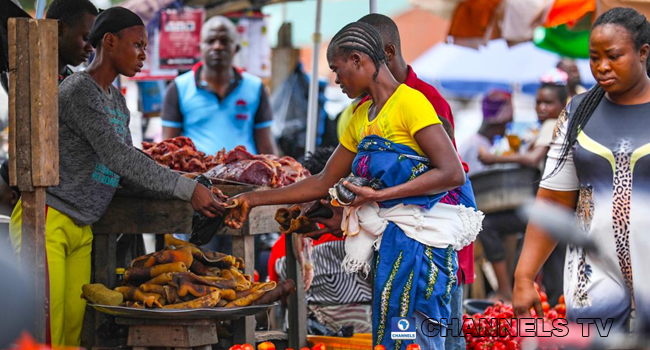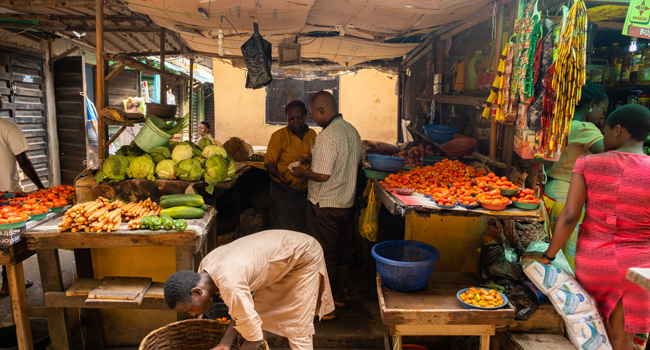 A file photo of a food trader at a market in Akure, the Ondo State capital. Sodiq Adelakun/Channels Television
A file photo of a food trader at a market in Akure, the Ondo State capital. Sodiq Adelakun/Channels Television
Nigeria’s consumer price index (CPI), a measurement of the rate of change in prices of goods and services, has declined to 17.75% in June from 17.93 recorded in May 2021.
The ‘Consumer Price Index Report for June’ released by the National Bureau of Statistics (NBS) on Friday, means that the prices have continued to increase in June 2021. However, it was at a slower rate than it did in the last month.
“The CPI measures the average change over time in prices of goods and services consumed by people for day-to-day living,” the NBS noted in its report.
“The construction of the CPI combines economic theory, sampling and other statistical techniques using data from other surveys to produce a weighted measure of average price changes in the Nigerian economy.”
The country’s Headline Index, on a month-on-month basis, moved by 1.06% in June 2021. This figure was 0.05 percentage points higher than what was recorded in May 2021 – pegged at 1.01%.
There was also an increase in the urban inflation rate as it jumped by 18.35 %(year-on-year) in June 2021 from May 2021’s 18.51%. On the other hand, the rural inflation rate moved by 17.16% in June 2021 from 17.36% in May 2021.
The NBS report equally noted that the composite food index increased by 21.83 % in June 2021. This is against the 22.28% reported in May 2021.
The implication is that prices of food rose in the month under review but at a little slower pace than what was recorded in May 2021.
Increases in prices of bread, cereals, yam, and others, drove the food price index.
Deepened Woes Of The Poorest

Global food prices are rising at their fastest rate in a decade, exacerbating the troubles of the world’s most vulnerable nations as they struggle with the fallout from the coronavirus pandemic.
The United Nations’ Food and Agriculture Organization (FAO) is worried that in countries already mired in political turmoil.
Where Are Food Prices Headed?
According to the FAO, food prices were nearly 40 percent higher in May than a year ago, the sharpest increase since September 2011.
On a 12-month basis, the price of corn has skyrocketed by 88 percent, soybean by 73 percent, grain and dairy products by 38 percent, sugar by 34 per cent and meat by 10 percent.
“Obviously, it’s very concerning,” said Arif Husain, chief economist of the World Food Programme.

In 2007-2008, brutal increases in the price of basic foodstuffs sparked riots in a number of cities around the world. Peaking in 2010-2011, the price rises acted as a harbinger for the Arab Spring uprisings.
Author:Emmanuel Egobiambu
